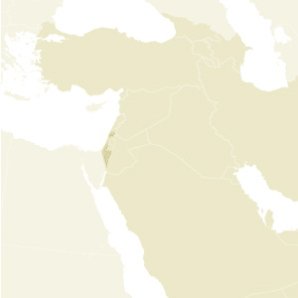Tunisians took to the streets in February to protest against Ariel Sharon’s programmed visit to Tunisia in November 2005 at the invitation of President Ben Ali. That invitation is a non-democratic decision of the Tunisian government, made against the people’s will. When making it, Ben Ali expected to lessen the U.S. pressures after the October 2004 election, which yielded the reelection with 95% of the votes for the outgoing president as a result of the constitutional amendments and the drastic security measures. Also, Egyptians, Moroccans, Jordanians, Omanis and Mauritanians often go out on demonstrations to impugn the normalization of the relationships of their countries with Israel in order to calm down the United States.
Despite all these movements, the Bush administration refuses to link the democratization of the Arab world to the solution of the Israeli-Palestinian matter, stating that these are two separate issues. However, to many Arabs, democratization can emerge only after settling the Palestinian matter. But as long as it remains unsolved, the democratization will be regarded as a hypocritical policy. The reasons for the Arab skepticism must be found in the paradoxes of the U.S. policy: the United States wants democratic governments but, how would the U.S. reaction be before an Islamic government emerging from the polls? The U.S. supports free mass media in the Arab world, but it tries to censure Al Jazeera. Finally, it supports the Israeli occupation of the Palestinian territories when an occupation is essentially antidemocratic.
The Arab regimes have understood quite well on their side that in normalizing their relationships with Israel, they were able to resist the U.S. pressures and establish Jordan or Moroccan-style regimes, that is, regimes that adopt cosmetic reforms to mask authoritarian rules.
« Abandoning Palestine and focusing on Arab reform is hypocritical », by Khaled Hroub, Daily Star, May 3, 2005.

 Articles by this author
Articles by this author

















Stay In Touch
Follow us on social networks
Subscribe to weekly newsletter